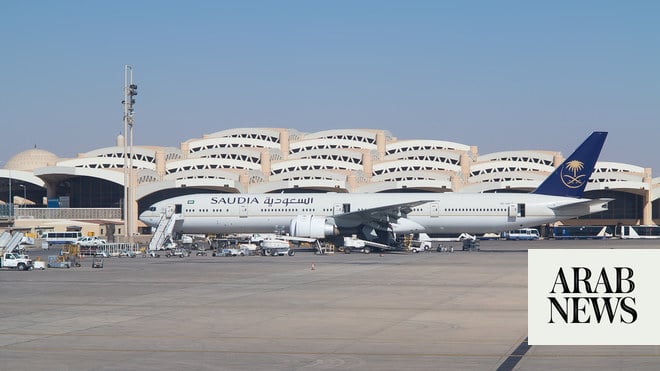RIYADH: The new integrated logistics zone at Riyadh’s King Khalid International Airport which will serve Asia, Africa and Europe, has welcomed Apple as its first major investor.
The integrated logistics zone was launched on Oct. 31 by Saleh Al-Jasser, Saudi Arabia’s transport minister and chairman of the General Authority for Civil Aviation.
“We are pleased to inaugurate the Kingdom’s first integrated logistics zone, a step that will be followed by the inauguration of logistics zones across the homeland, turning it into a logistics hub connecting three continents. This step goes in line with the objectives of the National Transport and Logistics Strategy,” said Al-Jasser during the event.
The minister said that the agreement with Apple was concluded when Crown Prince Mohammed bin Salman visited California in 2018 and met Apple’s CEO Tim Cook.
Al-Jasser pointed out that the opening of this facility comes as a part of the investment ministry’s previously announced plan to launch multiple economic zones.
According to a press release, the new integrated logistics zone will contribute to raising Saudi Arabia’s cargo volume from 0.5 million tons today to 4.5 million tons by 2030, in alignment with the Kingdom’s Vision 2030.
“This zone itself is unique. It encompasses best-in-class elements, enabling an optimal logistics and supply chain and environment. The integrated element of the zone means that all stakeholders, their systems, and transactions speak to each other in a seamless and transparent way,” Apple’s vice president of operations for Europe, the Middle East, India, and Africa Cathy Kearny said.
Asharq TV, quoting Al-Jasser, reported that the special integrated logistics zone will offer several privileges which include major tax advantages, including exemption from corporate tax to “zero tax” for a period of 50 years, exemption from VAT, deferment of customs duties, in addition to initiatives related to employment.
He added that these privileges will be provided to all investors, and it will add up to SR66 billion ($17.56 billion) to the national economy by 2030.
Apart from Apple, another 20 companies are also in talks to invest in the zone, Al-Jasser noted.



